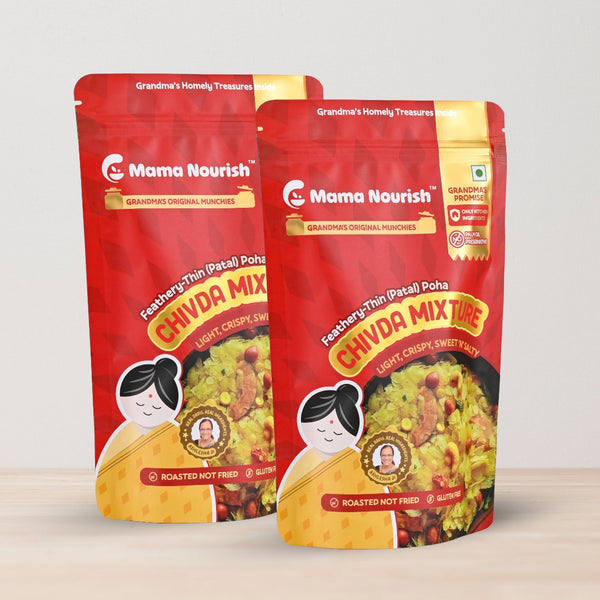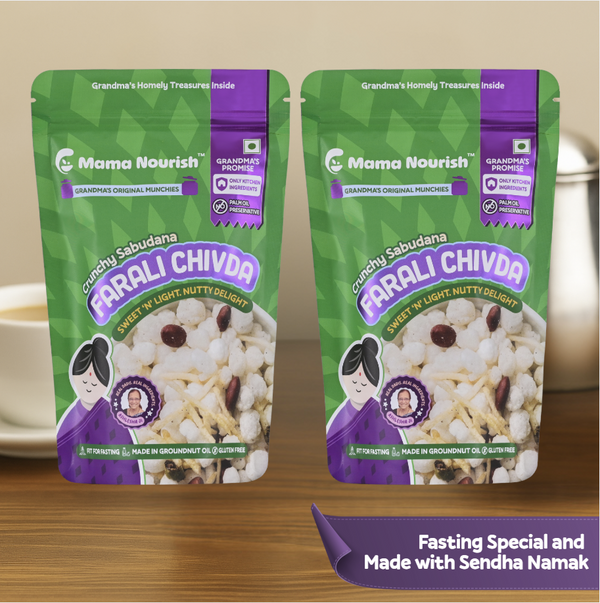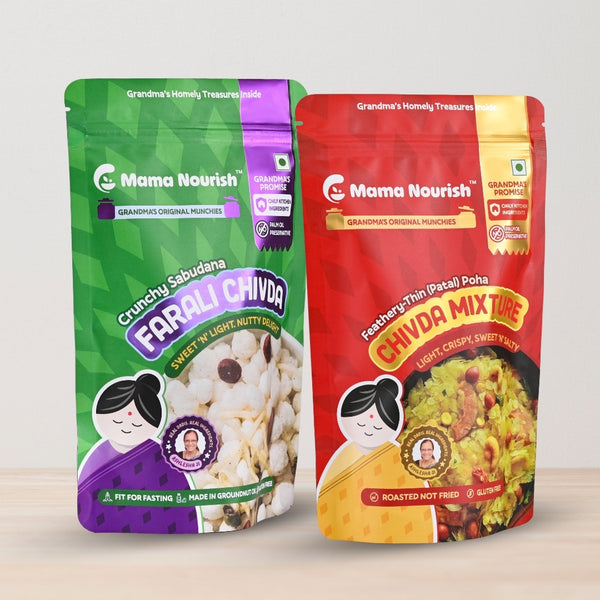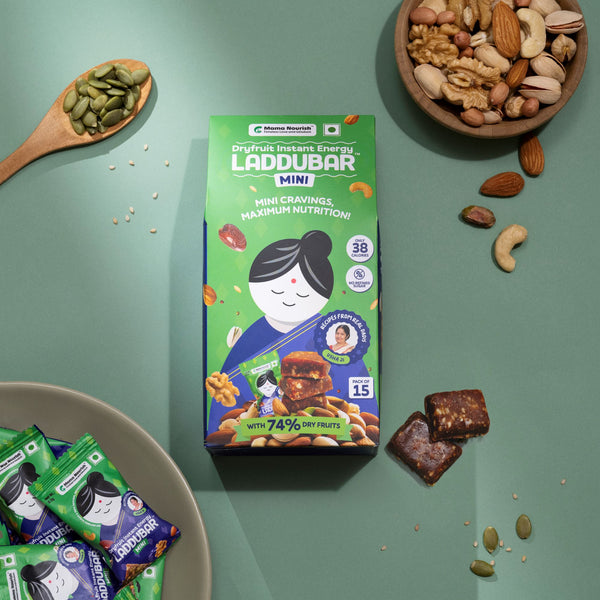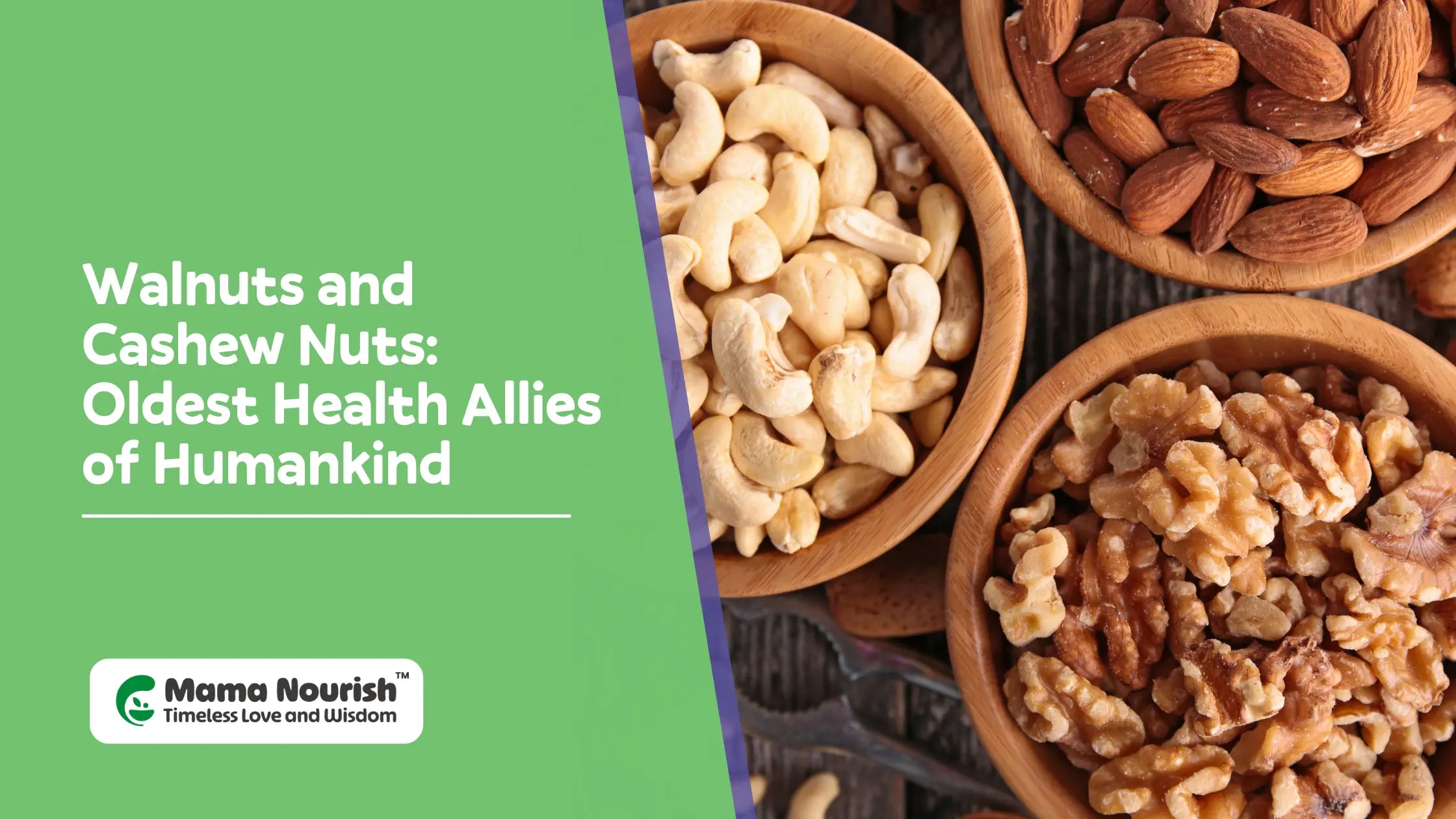
Walnuts and Cashew Nuts: Oldest Health Allies of Humankind!
Do you know what links Tirupati in the south to Lucknow in the north? Or what about laddus and pulao? Let me give you a hint; it's a nut!
Talking about nuts, it's hard to miss the cashews and walnuts—how many times have you been told to eat walnuts for the brain?
In fact, walnuts are one of the richest sources of alpha-linolenic acid (ALA), a type of omega-3 fatty acid. ALA serves as a precursor to DHA, which is a major structural component of the brain, particularly during fetal development and early infancy.
Walnuts, which flourished in the Himalayan regions, one of the ancient nuts of India, and cashews, introduced by the Portuguese in the 16th century, are celebrated ingredients in Indian cuisine not only for their taste but also for their health benefits.
How about exploring the health benefits and recipes infused with the richness of these nutrient powerhouses?
Top 6 Health Benefits of Walnuts and Cashew Nuts

1. Antidiabetic
Both cashew nuts and walnuts have anti-diabetic properties. A 2019 study, found that substituting 10% of daily energy intake with unsalted cashews decreased insulin levels in patients with Type 2 Diabetes.
Lowering insulin levels in individuals with Type 2 Diabetes can be beneficial as it enhances blood sugar management and reduces the risks linked to elevated insulin levels, such as cardiovascular disease and insulin resistance.
2. Heart Health
Including walnuts in a healthy diet may effectively reduce the risk of cardiovascular disease as they aid in lowering the bad cholesterol. The Walnuts contain alpha-linolenic acid (ALA), which is beneficial for heart health.

Cashew nuts are cholesterol-free and primarily consist of unsaturated fats, which can help lower blood cholesterol levels when part of a balanced diet.
3. Brain Health
A 2020 Research suggests that consuming 1 to 2 ounces of walnuts, i.e., around 28 to 56 grams per day, could improve cognitive function.
Additionally, eating walnuts, which contain antioxidants and anti-inflammatory compounds, may help reduce oxidative stress and inflammation, which are key factors in ageing, cognitive decline, and age-related diseases like dementia.
4. Eye Health
Cashew nuts contain antioxidants like vitamin E and lutein, along with zeaxanthin, which help protect the eyes from oxidative stress and filter harmful blue light, reducing the risk of age-related eye diseases.
Additionally, their healthy fats support overall eye health by improving blood flow and reducing inflammation. Including cashews as part of a balanced diet can contribute to maintaining healthy vision.
5. Weight Management
Cashew nuts and walnuts aid in weight management by promoting feelings of fullness due to their high protein, fibre, and healthy fat content.

Their nutrient density supports overall health while helping to regulate blood sugar levels, reducing cravings and promoting better appetite control.
Incorporating these nuts into a balanced diet can provide a satisfying and convenient snack option, contributing to weight management efforts when consumed in moderation.
6. Nutrient Rich
Cashews are rich in minerals like copper, manganese, phosphorus, and magnesium (79–110% DV).
The DV here refers to Daily Value, which represents the recommended daily intake of various nutrients for an average adult consuming a 2000-calorie diet.
Additionally, it also contains zinc, phosphorus, iron, selenium, thiamine, vitamin K, and vitamin B6,
100-gram serving, raw cashews provide 553 kilocalories. This serving size also contains 67% of the Daily Value (DV) for total fats, 36% DV for protein, 13% DV for dietary fibre, and 11% DV for carbohydrates.
Due to its extensive nutrient profile, Cashews are known to provide protection against chronic diseases, boost immunity, improve bone, brain, and muscle health, promote better sleep, and aid digestion.
Similarly, walnuts also boast a rich nutrient profile. Walnuts possess essential micronutrients such as manganese, copper, chromium, iron, and zinc, which are important for human metabolism and overall health.
Without shells, they contain approximately 15% protein, 65% fat, and 14% carbohydrates, including 7% dietary fibre.
A 100g serving of walnuts provides 654 kilocalories and is rich in dietary manganese, offering around 163% of the Daily Value (DV), as well as being a good source of B vitamins.
Due to this bountiful of nutrients, walnuts are known to improve blood pressure, decrease inflammation that causes chronic conditions, and promote gut health
With so many health benefits, how about finding some delicious ways to add this superfood to your diet?
6 Delicious Ways to Eat Cashews and Walnuts!
1. Mewa Laddu/Dry Fruit Ladoo

These naturally satiating, nutrient-packed energy balls are a healthy mix of almonds, cashews, walnuts, pistachios, sesame seeds, and pumpkin seeds, sweetened by dates and jaggery.
2. Sakkarai Pongal

This age-old South Indian recipe is specially made during the Pongal festival. It's a delicious treat made with jaggery, milk, coconut, ghee, cashew nuts etc.
3. Pulao

This fragrant rice dish made with basmati rice, cashew nuts, and aromatic spices like cloves, cardamom, and cinnamon, is a true celebration of flavours.
4. Walnut Halwa/ Akhrot Sheera

Walnut halwa is typically made with walnuts, semolina, sugar, ghee (clarified butter), milk, and aromatic spices like cardamom. You can add cashew nuts to make it akhrot kaju sheera.
5. Kaju Curry

This rich vegetarian delicacy is made up of cashew nuts (kaju), poppy seeds (khus khus), ghee, mawa, milk, vegetables, coconuts, thick cream, onion, coriander leaves, and spices like turmeric, cumin, and garam masala.
6. Tirupati Laddu

Have you ever tasted the famous laddus of Tirupati? The Tirupati laddus are world-famous as they are distributed as prasadam at the Tirupati temple dedicated to Lord Venkateshwara. They are made with urad dal, sugar, ghee, raisins, cashew nuts, and cardamom.
Nutty Flavors:Healthier Bites
These Brain-shaped walnuts and kidney-shaped cashew nuts have been healthy food allies to humans since time immemorial. In this article, we discussed the science-backed health benefits of walnuts and cashew nuts and delicious ways of cooking them. Try making these recipes at home to enjoy the nutty flavour brimming with numerous health perks!
If you are into healthy eats crafted with grandmother’s ingredients and timeless wisdom, check out our laddubars!
Interesting Nutty facts
- The almonds (Sanskrit: vatama), pistachios (Sanskrit: pishtha), and walnuts (Sanskrit: akshota) are considered ancient nuts in India
- Cashew nuts originated from southeast Brazil, some stories suggest that natives learned to crack them by observing monkeys!
- The term "caju," introduced to India by the Portuguese and still used in Indian languages, originates from the Tepi tribe's "acaju" in Brazil, later anglicized to "cashew."
- It is believed that the Portuguese first introduced cashew nuts in Goa. In Kerala, the cashew fruit is referred to as "gomango," likely indicating its origin from Goa.
Share

